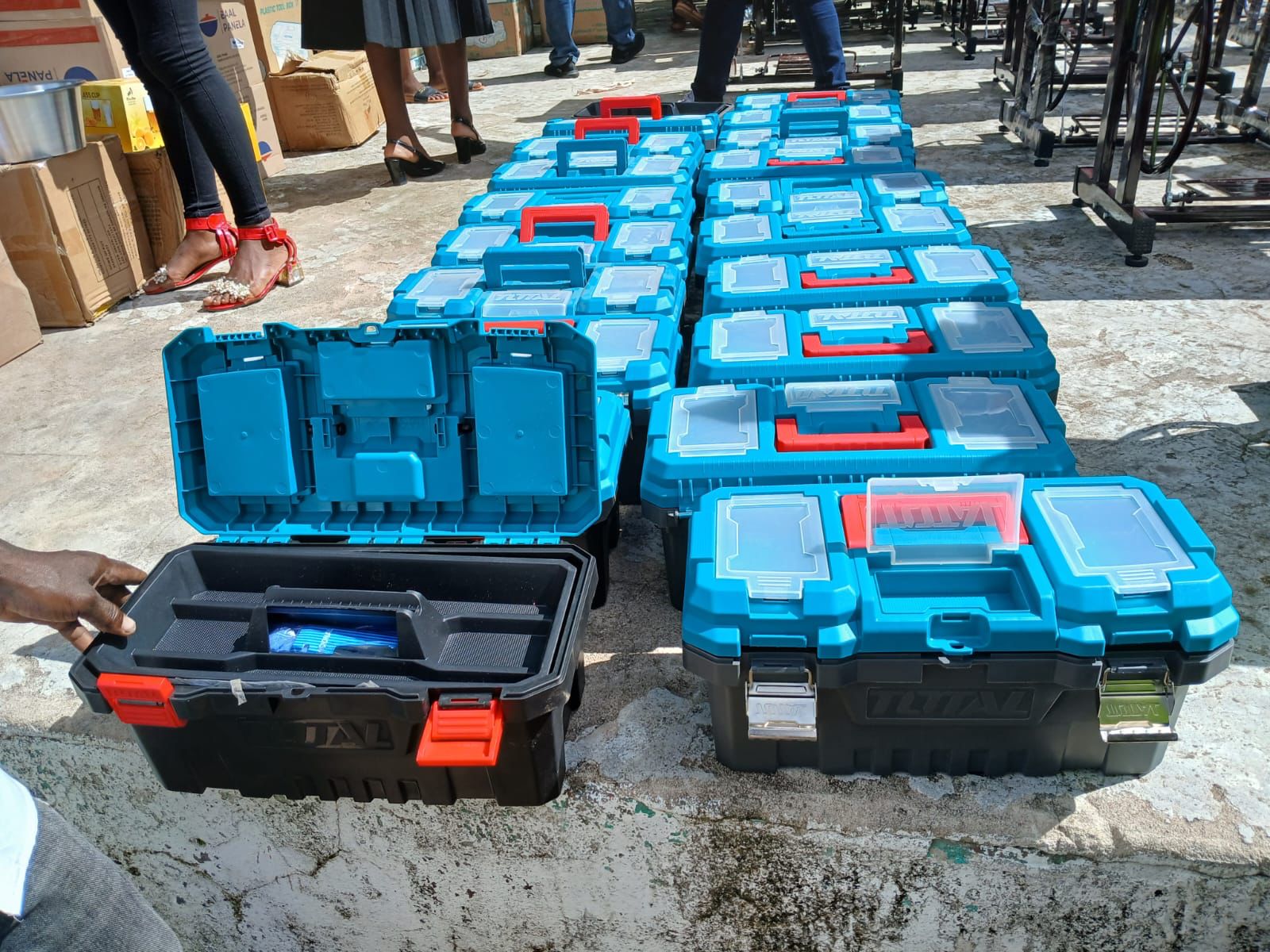Vocational Training Beneficiaries in Nicoadala Receive Work Kits and Certificates
March 13, 2025
A total of 100 beneficiaries of youth vocational training courses implemented by the Mozambique Recovery Facility (MRF) received work kits and training certificates, marking a significant step toward their integration into the job market and the strengthening of local economies.

Group photo after handover of vocational kits
This initiative is part of Pillar 1 of the Mozambique Recovery Facility (MRF) and has been made possible through close collaboration with the Government of Mozambique and the generous contributions of international funding partners. The project is financed through the MRF Basket Fund, supported by key contributors, including the European Union (EU) – the largest funding partner – as well as Canada, Finland, the Netherlands, India, China, and Norway.
Their collective commitment to Mozambique’s recovery and resilience is helping restore hope and improve livelihoods for those most in need.
The trainees, from various communities in Nicoadala district, received 60 sewing kits, 20 culinary kits, and 20 electrical kits, aligned with the youth vocational training courses they completed. Among the beneficiaries, 70 are women and 30 are men, reinforcing the programme’s commitment to inclusion and economic empowerment within local communities.

Nicoadala Electricity Kits
Official Ceremony and Local Engagement
Beyond the presence of UNDP, the event was presided over by the District Administrator of Nicoadala, Ms. Adelina Tiroso, and was attended by local leaders from Namacata, Munhonha, and Nicoadala Sede, as well as the trainees and the implementation partner, Adel Sofala. The active participation of local authorities and implementing partners underscores the collective commitment to empowering communities and fostering sustainable economic opportunities.
About UNDP and the Response to Cyclones Idai, Kenneth, and Freddy
The United Nations Development Programme (UNDP) is the leading UN agency dedicated to poverty eradication and sustainable development. In Mozambique, UNDP has played a crucial role in post-disaster response and recovery, particularly following the devastation caused by Cyclones Idai and Kenneth in 2019, and Cyclone Freddy in 2023. These extreme weather events led to widespread destruction, loss of lives, and the displacement of thousands of families, with Zambézia Province among the hardest-hit areas by Cyclone Freddy.
In response to these disasters, UNDP, in partnership with the Government of Mozambique and the international community, launched the Mozambique Recovery Facility (MRF), a funding mechanism designed to support the sustainable recovery of affected communities.

Nicoadala Sewing Kits
The MRF is built on three key pillars:
• Livelihood Recovery and Women’s Economic Empowerment – Restoring livelihoods, providing skills training, and fostering entrepreneurship to create sustainable economic opportunities.
• Resilient Reconstruction of Housing and Community Infrastructure – Rebuilding homes, schools, clinics, and essential public infrastructure with enhanced resilience.
• Governance Strengthening and Institutional Capacity Building – Enhancing crisis response mechanisms and fostering long-term resilience in governance and development.
Since its inception, the MRF has been a driving force in Mozambique’s recovery and reconstruction, providing essential support to thousands of people through strong collaboration between the Government of Mozambique, UNDP, and key international partners.
As part of these efforts, the youth vocational training in culinary, sewing, and electricity, along with the distribution of work kits in Nicoadala, represents a crucial step toward ensuring that cyclone-affected communities can rebuild not only their homes but also their sources of income and livelihoods, paving the way for a more sustainable and resilient future.

 Locations
Locations



